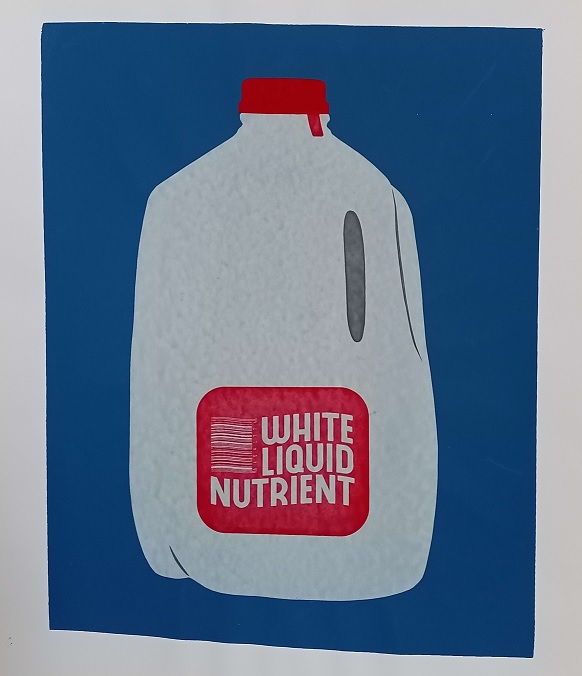For anyone who doesn’t read the article but gets upset at the title because climate friendly meat actually exist. It’s about a new label for meat that says “Environmental Friendly”. Similar to the certificate for “Organic” or “GMO-FREE”.
And the certificate is bullshit. Even in it’s strictest form you only need a 10% reduction in CO2 production to the industry standard to qualify. Which is nothing.
But it gets worse, the rating is done by third party companies who have leeway in setting the industry standard. One company even has the industry standard set higher than the actual industry average.
So overall the certificate is bullshit that makes people feel better but doesn’t actually do anything.
Oh, so exactly like the “organic” or “GMO-free” labels.
Does climate friendly meat actually exist? I don’t really understand how, at least not at the volume people eat meat today.
it cannot exist
meat is inherently the most inefficient way of consuming calories, let alone the pain, suffering and horror it causes.
there’s no morally or ethically correct way to eat meat, unless you’re an indigenous tribe that literally has no other option.
Efficiency of calorie acquisition is not the same as sustainability though. Culling an overpopulation of deer that keeps a forest from developing or an invasive species that is wreaking havoc on an ecosystem can both be a net positive on the ecosystem and in terms of sequestering carbon. Meanwhile growing crops on former rainforest land is a clear net negative.
Those are edge cases though of course and with your average store selection, going with plant-based will just about always be more sustainable.
you have to ask, why are they becoming overpopulated though? And the answer is, because animal ag. Farmers kill the natural predators because they fuck with their animals that we eat.
The reason those predator species got killed to near extinction is probably a bit more broad and ugly than just concern for lifestock.
But you’re correct of course that the main reason for the current overpopulation of many non-invasive species is a lack of predators and they should be reintroduced. But that’s also not a thing that can happen from one day to the next, so even in the most optimistic scenarios some degree of human wildlife management still has a purpose.
Many farmers growing plants for animal feed. Also there are Deer farms that raise deer specifically for the hunting industry.
I would argue lab grown meat is fine, but afaik it is still more resources intensive to produce than, like, tofu. And it’s not like it’s going to be available in appreciable amounts in the near future.
Of course it exists. There is venison and other wild hunted meat. In many places these animals have to be shot anyhow for population control. Overhunting would be the only issue here.
Then there are purely pasture fed animals. Especially with goats this is common . But there are also some cattle and pig farms. As long as the land itself wasn’t deforested and is given enough time to repair itself, it’s perfectly sustainable.
Then there are things like keeping chicken in your garden that are only fed kitchen scraps. Depending on your household size you can even keep 1-2 pigs that way.
If any of these options are available to you, they can be more environmental friendly than some plant based foods. Locally sourced version is definitely better than having plants shipped across the globe.
As you said the only issue is the quantity and also the desire for premium cuts. A lot of meat is currently wasted because it’s “undesirable”. Some parts will find their way into animal food but a lot also just gets thrown away.
At the end I said at the volume of consumption we have. If everyone switched to wild game we’d instantly go from over population to over hunting and that’s not sustainable. You wouldn’t be able to support the volume with pasture raised without deforestation either. Raising your own animals also wouldn’t match the volume that people eat meat currently either. Even if we were more efficient with the meat we use I still think we’d be orders of magnitude off. I’m not totalitarian anti meat, I just don’t see any path to sustainability without huge decreases in consumption. The things you pointed out are great, but I think we can’t mislead people into thinking that will be enough for them to not have to change their eating habits.
Thanks, indeed the title is misleasding (as best)
Sounds like when they tried pushing “clean coal”
This is the best summary I could come up with:
If that measurement is at least 10% lower than an industry benchmark set by the auditing company for emissions, the producer gets USDA approval to label their products “climate-friendly” and use related language in packaging and marketing.
Matthew Hayek, assistant professor of environmental studies at New York University, points out that this means that even products with higher-than-average emissions outputs will qualify for the “climate-friendly” label.
On top of that, the third-party verification process isn’t as rigorous as it sounds—it runs on the honor system, allowing companies to report their own calculations, as if there were no obvious conflict of interest.
Some of the richest ecosystems on the planet are consistently wiped out to make room for cattle operations; livestock farming is a known threat to biodiversity and a cause of species extinction.
It’s unsurprising that an industry would spin the truth to position itself as being on the right side of the climate crisis, but it’s a little galling that a government agency would not just allow this, but facilitate it.
The truth is that anyone who is legitimately interested in lowering their environmental impact should cut back on or skip beef altogether, opting instead for plant foods like fruits, grains, vegetables, and legumes.
The original article contains 1,164 words, the summary contains 205 words. Saved 82%. I’m a bot and I’m open source!
Guys, we know it’s friendly because their mascot is waving hello with a really big mickey mouse glove. Relax.
deleted by creator
Climate friendly meat is just chicken or fish.
https://8billiontrees.com/wp-content/uploads/2022/11/Meat-Carbon-Footprint.webp
https://i.insider.com/56000d139dd7cc24008bbbc7?width=700&format=jpeg&auto=webp
climate friendly meat is well seasoned tofu. Or any of the hundreds of alternatives available.
mmm tofu drools
Some meats are more climate friendly than others, but compared to a plant based diet they are still a lot worse in terms of CO2 emissions.
You can see from the graphs above that when dealing with only CO2 there is a marginal increase in how much worse chicken or fish are compared to alternatives which aren’t as nutrient rich.
A 3x increase isn’t nearly as high as people would like you to believe. Let alone milk which is more eco friendly than many of your common calcium alternatives.
Not only that but dairy plans to be carbon neutral in the USA as of 2050.
You can paint eco-friendly husbandry practices terribly as much as you want, but real progress is constantly being made. These same industries are the ones actually investing in lab grown meat.
https://newrepublic.com/article/171709/inside-battle-big-ag-lab-grown-meat
https://www.businessinsider.com/the-top-10-foods-with-the-biggest-environmental-footprint-2015-9
Yes but co2 isn’t everything. How much space it uses, which could be used to keep biodiversity high is also very important and actually the bigger factor in the question of human civilization surviving. We can deal with hotness, but we can’t deal with no insects
The common thing there is that they’re smaller animals. When you raise a large animal like a cow you need to sustain that extra size for the entire time they grow.
You can see from the graphs that the smaller animals don’t matter. It’s per kg of consumed food per kg of CO2.
That also means that meats which are more nutrient rich and bioavailable are often as good as plant alternatives. This only gets better with time and eventual lab grown alternatives.
Altering diets for husbandry has made huge strides in lowering emissions too.
Vegans can Doomer emissions as much as they want to but it’s already solved lol. The market will get there just like every other green intiative because turns out people and money DOES care about the future.
The biggest issue with eating meat currently is their shit poor living conditions and treatment. Even separating calves early for dairy isn’t nearly as bad for yields as people previously thought too. Like any industry it takes time to make change.
https://www.businessinsider.com/the-top-10-foods-with-the-biggest-environmental-footprint-2015-9
https://www.eenews.net/articles/changing-cows-diets-could-curb-emissions-will-farmers-dig-in/




